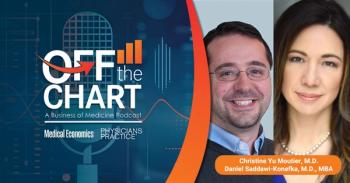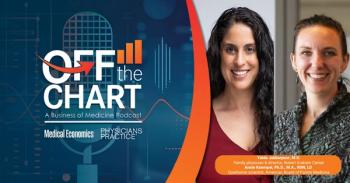
Thoughts about Retiring from Medicine after a Long Career
It takes a lifetime of planning to ensure you can retire according to plan. Here are some steps to make it a reality.
I find myself going through a number of transitions this winter. My wife, Judy, retired last June after a 35-year career as an elementary and special education teacher. On Jan. 1, I transitioned to part time work – by design – in preparation of fully retiring on my birthday in 2019. I often ask myself how I got here, with the assets I need to be secure for the rest of my life. It boils down to making the right decisions, at the right time, and sticking to a plan.
Early in my career, I didn't give much thought to this time in my life, as I couldn't ever conceive of a time when I would not be working. It is easy to have that attitude when you are young and the sky is the limit. I was fortunate to have physicians mentor me early in my career (it could have been anyone), who instilled in me the value of saving for the future, and using the vehicles available to me to make my retirement secure.
I have always been a saver and a planner. I am also very fortunate to be married to my life friend and partner, who shares my values in this area, and worked in a profession with an excellent pension program. We share her lifetime income together, which is a result of her hard work and sacrifice over the years.
As I look back on some of the decisions that I made (both good and bad) over the years, a couple of really good ones stand out.
1. When you work in a system that has a retirement plan and profit sharing, never hesitate to take advantage of it. Most 401(k) plans have an employer profit sharing provision which matches contributions up until a percentage of income. The minimum that you should contribute is the amount that you need to maximize the employer side contribution. To do anything else is to walk away from the easiest money that you will ever make. And that it is tax deferred is another bonus.
2. Set up your own corporation. I don't have to tell physicians this since they have been doing this for years. I only followed in their footsteps in 2005, and it was the single most important financial decision that I ever made. The corporation gives me a vehicle to write off business expenses that are under my control. While it was more complicated early on as I had a PA staffing company and employees, which triggered certain 401(k) rules that restricted profit sharing, becoming an "S-Corp" of one employee freed me from all the safe harbor rules. Over the past 8 years, I have been able to contribute the maximum on the employee side (As well as "catch-up" contributions because of my age), but I have also contributed maximum employer side contributions as I am the only employee of my corporation. It adds really up quick.
3. Accumulate assets and not liabilities. Judy and I have made a number of real estate income generating acquisitions, only one of which has a small remaining mortgage. These assets are a nice buffer and potential monetary resource if we need them in the future. So often I see physicians and PAs "live for the moment" and spend all their money on their houses and toys, not thinking about the future. With just a little self-restraint and planning, you can have it all. I do love my toys and exotic vacations, and I can afford them now.
4. Pay off your mortgages while you are in your highest earning years. This was one of the most important things that I did. When you don't have a lot of payments, you don't need as much income to do the things that you want to do. It was incredibly liberating to pay off the mortgages on our real estate, and free up a ton of cash flow in our family. It made early retirement a reality, more than anything else that we did.
I work with a bunch of Kaiser Permanente physicians who are nearing mandatory retirement age. Kaiser does a great job of preparing their physicians for this transition. One orthopedic surgeon with whom I go on medical trips with recently attended his all day retirement seminar, The presenter started out with a piece of advice as the key to early and happy retirement. That advice was, "One house, one spouse." This makes sense, and I intuitively followed that advice (at least partially) to reach the finish line with my health intact. I look forward to traveling the world and gaining new experience.
Newsletter
Optimize your practice with the Physicians Practice newsletter, offering management pearls, leadership tips, and business strategies tailored for practice administrators and physicians of any specialty.








